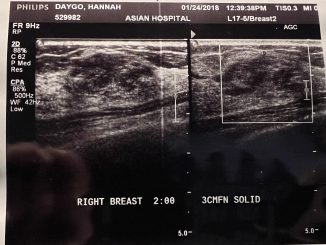
Internships and work experience are an important part of college. But once you get your degree, you can sleep safe in the knowledge that you will get a permanent job and be rolling in your piles of money, right? Wrong.
Ever since the start of the recession, internships have become more and more common for post graduate students, with a lot of them even being unpaid. But should students be accepting these internships? Is it now essential to gain this unpaid experience before you can apply for a full time job?
The European Graduate Barometer, a survey conducted in 2012 across European countries, indicates that Irish students’ optimism of finding a job when they graduate has dropped by almost 20 per cent since 2009. More worryingly, Eurostat data shows that our youth unemployment rate is at 25 per cent.
Sean Buckley, Youth Engagement Officer at SpunOut said that whether or not students should do unpaid internships is a tough question: “Internships are important as they are a way to learn skills. College courses can’t give you practical experience, but employers often don’t have the capacity to take people on.”
Lorna Finnegan, DCU Students’ Union Welfare Officer was not quite as enthusiastic. She said: “In my opinion companies do this simply because they can. I’m of mixed opinion as to whether it is fair or not.
“Yes I can see that graduates in some cases are gaining experience and boosting their CV and employability. However there has to be some sort of limit as to the period of time students are expected to work for free and the hours they work must also come into the equation.”
The Youth Guarantee Scheme is currently in development in Ireland and across the EU. The scheme involves giving young people the training and education that they need and setting out a quota of young people that must be met on every employment scheme. People will also be able to access this scheme after four to six months of unemployment instead of 12 months.
So when asked if students should just accept that they have to work for free in the current climate, Finnegan said: “Unfortunately, yes. They have to accept that every open door leads to another, and sometimes working for free is the only stepping stone available into the career they are chasing.”
And what about students who can’t afford to work for free in the long-term? Finnegan said that’s where she draws the line.
“I think students who are completing unpaid internships should be working a minimum amount of hours a week to allow them to maintain a part-time job in order to obtain a living. Overworked and unpaid is unacceptable and students should be receiving some sort of expense for living if expected to complete a full-time unpaid internship.”
Joe O’Connor, President of the Union of Students in Ireland (USI) said that some employers seem to be using these unpaid internships as a free labour market that’s open to them.
O’Connor said that employers are taking on fully qualified and highly skilled graduates and not paying them for doing an almost full-time role. “We are not against internships, but they shouldn’t become an integral part of the hiring process. Sometimes they are necessary, but young people seem to be being devalued in the workplace.”
But what do employers think about unpaid internships?
“Paid internships are not always easily accessible for employers. Unpaid experience can lead to a paid job.”
She also thinks that doing internships in general is a great way for students decide what they want to do: “I think that sometimes people are unsure when they come to us about whether they want to be a solicitor or not. Then they might finish the internship and then decide they want to be a barrister.”
Claudia-May Gocoul is a final year Journalism student in DCU and has been interning at OohLaLa magazine since January. While her internship is unpaid, it covers expenses and has future job prospects.
When asked if she would consider continuing with an unpaid internship after she graduates, she said: “Realistically, you might have to do an unpaid internship upon graduating. I would have no problem doing an unpaid internship if the experience would set me up for a good job in my chosen field.”
However she added: “If you are doing the same work as a full time employee or even more, then you should be compensated.”
Ross McBride, a second year Computer Applications student also did an unpaid internship, but thinks that they are only something you should do once: “I probably won’t do it again. I think there’s only so much you can learn while on an unpaid internship, and doing it once for a few months should give me enough experience so that I don’t have to do it again after I graduate.”
Sean Buckley from SpunOut gave some simple tips to follow when it comes to unpaid internships. “There’s no quick solution to the problem. But graduates can avoid exploitation by setting boundaries, not working outside their designated hours, asking questions about future employability, and making sure that they have choices and aren’t stuck with that company for the foreseeable future. If you are being exploited or taken advantage of, speak to someone.”
Suzanne Cooper




Leave a Reply